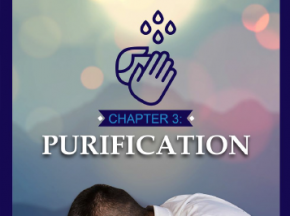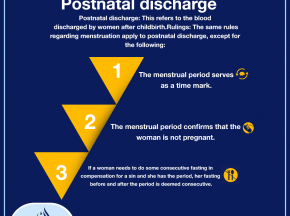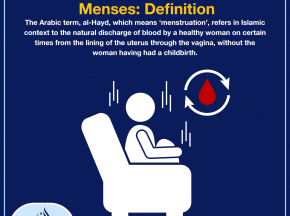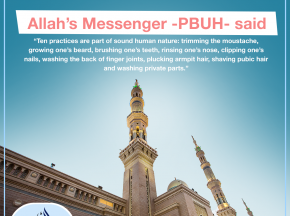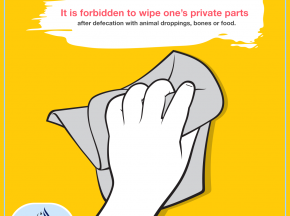content of level
Containers, plates and utensils
It is permissible to all Muslims to use all types of utensils, containers and plate including those made from metal.
Does the water we wash an impurity with, become impure itself?
Does the water we wash an impurity with, become impure itself? - Assim al hakeem.
What is istijmar?
What is istijmar(Toilet Paper etc after urinating defecating)& does it impact purity?
Purification
Muslims must be pure before praying or any other act of worship requiring purity. Purification means the removal of any physical discharge from private parts which require washing, water sprinkling or wiping.
Fitrah - Recommended practices
There are five practices also called ‘nature’s fine characteristics’ that each Muslim should perform to keep the best and most complete form. Practices and the reason behind them are explained in the article.
Using the toilet and its manners
There is an etiquette that must be followed when using the toilet. Islam has described how one should take care of his personal hygiene. Other acts are prohibited like facing or turning one’s back to the qiblah.
purification
Any water could be used for purification if it retains its original state as it is created. This water is called “Tahur” and it could be taken from any source; whether it is rain, rivers or coming up from the earth.
The things forbidden during menstruation
In this Lecture, Sh. Assim Al-Hakeem discusses and explains the things forbidden during menstruation. This course will cover all the practical rules that every Muslim, man or woman, should know, citing their bases in the Qur’an and the Sunnah.
Impurities and how to remove them - part two
In this Lecture, Sh. Assim Al-Hakeem explains the rules of Impurities and how to remove them.
Learn Fiqh with Al-Hakeem | Ghusl, or taking a bath - Tayammum, or dry ablution
In this Lecture, Sh. Assim Al-Hakeem explains the rules of Ghusl, or taking a bath and illustrates the Tayammum, or dry ablution and how it done. This course will cover all the practical rules that every Muslim, man or woman, should know, citing their bases in the Qur’an and the Sunnah.
Learn Fiqh with Al-Hakeem | The purification - Part 2
In this Lecture, Sh. Assim Al-Hakeem explains the meaning of Purification and illustrates several important aspects of Tahara (purity and cleanliness) in Islam. This course will cover all the practical rules that every Muslim, man or woman, should know, citing their bases in the Qur’an and the Sunnah.
Learn Fiqh with Al-Hakeem | The Purification
In this Lecture, Sh. Assim Al-Hakeem explains the rules of Purification and illustrates the etiquette that must be followed when using the toilet. This course will cover all the practical rules that every Muslim, man or woman, should know, citing their bases in the Qur’an and the Sunnah.
How to rinse your Mouth and Nose while making Wudu & Ghusl?
How to rinse your Mouth and Nose while making Wudu & Ghusl? - Assim al hakeem,
Can we recite Durood, Duas, Adkhar in the state of major sexual impurity?
Can we recite Durood, Duas, Adkhar in the state of major sexual impurity?
Is Ghusl Needed If My Period Began Right After Intercourse?
After marital relations you are in a state of ritual impurity (called Janaba where recitation of Qur'an is not allowed) which is different from the state of menstruation. During menstruation even though there is a difference of opinion you are allowed to recite Quran without touching it physically. Some ulema even encourage it.
Postnatal discharge
Postnatal discharge: This refers to the blood discharged by women after childbirth. Rulings: The same rules regarding menstruation apply to postnatal discharge, except for the following: 1.The menstrual period serves as a time mark. 2.The menstrual period confirms that the woman is not pregnant. 3.If a woman needs to do some consecutive fasting in compensation for a sin and she has the period, her fasting before and after the period is deemed consecutive.
Menses: Definition
The Arabic term, al-Hayd, which means ‘menstruation’, refers in Islamic context to the natural discharge of blood by a healthy woman on certain times from the lining of the uterus through the vagina, without the woman having had a childbirth.
Ablution, i.e. Wudu’
In Islamic contexts it means ‘the use of water in respect of four organs, the face, arms, head and feet, in a particular way defined by Islam with the intention of worship.
Recommended practices of sound nature
Allah’s Messenger -PBUH- said: “Ten practices are part of sound human nature: trimming the moustache, growing one’s beard, brushing one’s teeth, rinsing one’s nose, clipping one’s nails, washing the back of finger joints, plucking armpit hair, shaving pubic hair and washing private parts.”
Muslim bathroom etiquette - Part III
It is forbidden to wipe one’s private parts after defecation with animal droppings, bones or food.




